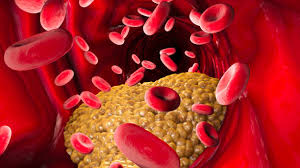
Triglycerides are a type of fat found in our bodies and in various food sources. They provide energy for cellular functions and support overall health. Triglycerides are classified based on the length of their carbon chain, which determines their structure and properties.
Understanding Triglycerides
Triglycerides are the most common type of fat found in our bodies and in the food we consume. They consist of three fatty acid chains attached to a glycerol molecule. The length of these fatty acid chains distinguishes different types of triglycerides. Short, medium, and long chain triglycerides each have their unique characteristics and effects on our health.
Short Chain Triglycerides (SCT)
Short chain triglycerides (SCT) contain fatty acid chains with fewer than six carbon atoms. They are commonly found in dairy products, such as milk and cheese. Our bodies can quickly metabolize SCT, making them an excellent source of instant energy. SCT exhibit antimicrobial properties and may support gut health by promoting the growth of beneficial bacteria.
Medium Chain Triglycerides (MCT)
Medium chain triglycerides (MCT) have fatty acid chains ranging from six to twelve carbon atoms. Natural sources of MCT include coconut oil, palm kernel oil, and dairy products. MCT are rapidly absorbed by the body and efficiently converted into energy. They are often favored by athletes and individuals following a ketogenic diet due to their ability to provide sustained energy without being stored as body fat.
Long Chain Triglycerides (LCT)
Long chain triglycerides (LCT) consist of fatty acid chains with more than twelve carbon atoms. Common dietary sources of LCT include vegetable oils, meat, fish, and nuts. LCT take longer to digest and are primarily stored as energy reserves in our body. They play an important role in hormone production, insulation, and protecting organs.
Benefits of Short Chain Triglycerides
- Rapid energy release: SCT are quickly absorbed and metabolized, providing an instant source of energy.
- Gut health support: SCT promote the growth of beneficial bacteria in the gut, aiding digestion and overall gut health.
- Antimicrobial properties: SCT exhibit antimicrobial effects, helping to combat harmful bacteria in the body.
Benefits of Medium Chain Triglycerides
- Sustained energy: MCT are readily converted into energy, providing a sustained source of fuel for physical and mental activities.
- Weight management: MCT may help with weight management due to their potential to increase satiety and boost metabolism.
- Cognitive support: MCT can cross the blood-brain barrier, supplying the brain with a readily available energy source and supporting cognitive function.
Benefits of Long Chain Triglycerides
- Energy storage: LCT serve as a long-term energy reserve, providing a steady supply of energy during prolonged periods of fasting or low food intake.
- Hormone production: LCT are essential for the production of hormones, including sex hormones and adrenal hormones.
- Organ protection: LCT act as a cushioning layer around vital organs, protecting them from impact and providing insulation.
Food Sources of Short, Medium, and Long Chain Triglycerides
- Short chain triglycerides: Milk, cheese, butter, and fermented foods like yogurt and kefir.
- Medium chain triglycerides: Coconut oil, palm kernel oil, and products derived from them, such as MCT oil.
- Long chain triglycerides: Vegetable oils (e.g., olive oil, canola oil), meat, fish, nuts, and seeds.
FAQs
1. Are triglycerides bad for my health?
Triglycerides are not inherently bad for your health. They are a necessary component of our diet and play crucial roles in energy metabolism and hormone production. However, high levels of triglycerides in the blood may indicate an increased risk of heart disease. It’s important to maintain a balanced intake and lead a healthy lifestyle.
2. Can I consume short, medium, and long chain triglycerides together?
Yes, you can consume all types of triglycerides as part of a well-rounded diet. The key is to focus on incorporating a variety of food sources that provide a balanced intake of short, medium, and long chain triglycerides.
3. Can triglycerides help with weight loss?
Medium chain triglycerides (MCT) have been studied for their potential role in weight management. MCT may increase satiety and boost metabolism, which can aid in weight loss efforts. However, it’s important to remember that weight loss is a complex process that involves various factors, including overall calorie intake and physical activity.
4. Should I replace all other fats with MCT oil?
While MCT oil can be a beneficial addition to your diet, it is not necessary to replace all other fats with MCT oil. It’s important to maintain a balanced intake of different types of fats, including monounsaturated fats and polyunsaturated fats, which provide additional health benefits.
5. Where can I find MCT oil?
MCT oil is readily available in health food stores, supermarkets, and online retailers. It is derived from natural sources like coconut oil and palm kernel oil. When purchasing MCT oil, ensure it is of high quality and derived from reputable sources.

